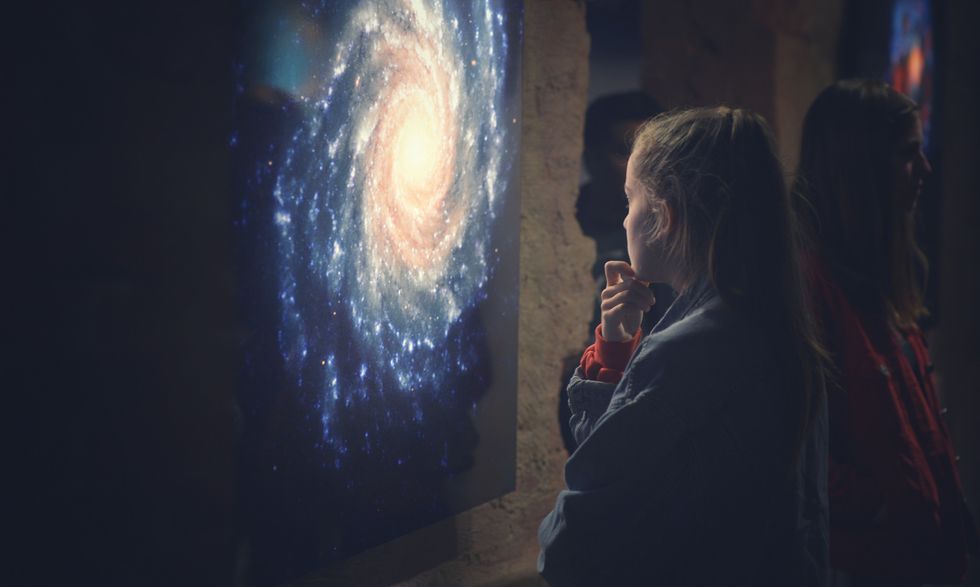It’s a bitterly cold, January night, and I’m standing in the middle of a dark field, surrounded by strangers. Sounds strange, right? Well, believe it or not, this event served as an incredibly eye-opening and awe-inspiring night, and what I took away from this night was actually quite impactful. Let me tell you why…
Early this January I had the opportunity to take a winter intersession course, consisting of a semester’s worth of credit for a class condensed into a mere two week period. I chose to take a basic level astronomy course, simply attempting to take a fairly easy science class in order to get my science credit out of the way (science has never been my speciality).
Now, taking any course, but especially science-related courses, at a public university can cause contradiction if you are a follower of Christ, and I knew going into this class that I was likely to face controversy regarding what I would be taught versus what I believe in my faith. However, I knew I was going to take everything I was taught “with a grain of salt” and just strive to make it through the class with an A.
Immediately upon having my first lecture, when we were taught that the beginning of the universe was proven, not theorized, to have occurred due to the Big Bang, I questioned whether or not I had picked the right science class, wondering if this class would be teaching me too many secular ideas that conflict with my beliefs. Nonetheless, I was already there, the class was paid for, and I wasn’t going to back down at this point.
Little did I know that, despite some contradictory points I was taught, this class was actually one of the most spiritual, nonsecular classes I could have chosen.
The truth is, for the professor and his fellow astronomers who have no faith in God, this science is, in reality, incredibly less intriguing and mind-blowing than it is to those with faith.
When such people with no faith in God peer into the sky and gaze at the stars, they merely see enormous balls of gas, created from interstellar explosions and other “reasonable” explanations. However, when I look into the stars, I see something truly divine. I see only a small part of what God can accomplish.
I see planets in our galaxy, stretching billions of miles throughout our solar system, and stars in our galaxy, a galaxy that is only 100,000 light years in diameter (one of those light years is six trillion miles… and there are 100,000 of them!!!). And that is simply our galaxy; there are 100 billion galaxies that we know of in our universe, some stretching millions of light years.
I see all this (well, what I can see of it) and think, “I am a 5 foot 3 little girl who will come and pass on this Earth without many people even knowing. I am unbelievably tiny and such a immensely minuscule part of history.” Sounds somber, doesn’t it?
As a matter of fact, if it were not for my faith, I believe that everything I just learned about the extent of our universe would have made me feel irrelevant and extremely lonely. However, approaching this class from a Christ-centered perspective did not leave me feeling this way; rather, I feel the exact opposite. I feel an even greater love and comfort from an omnipotent God.
In my eyes, I see no reasonable explanation or proven theory behind the Big Bang approach on the beginning of the universe. I, on the other hand, see the joy in having a Creator who formed this entire universe in its tremendous, unbelievable size, yet also created a short, unique girl like me. And you know what? He loves me beyond measure. He values my seemingly insignificant life, and reminds me that I, in fact, have great significance.
So, maybe you are like those astronomers who believe that this universe simply created itself; however, I encourage you to investigate the idea that there is actually a divine Creator. I promise you, astronomy can bring you so much more joy from this perspective, as well as demonstrate how loved and cared for you as an individual actually are.



















